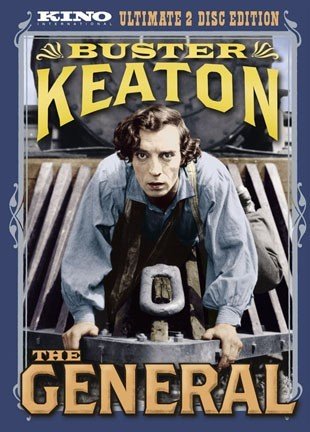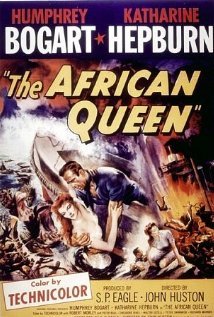| None | Light | Moderate | Heavy | |
|---|---|---|---|---|
| Language | ||||
| Violence | ||||
| Sex | ||||
| Nudity |
What You Need To Know:
Content:
(L, N, VV, M) Two obscenities, magazine pictures of partially-nude women, graphic scenes of murder and medical procedures, and existential philosophy.
More Detail:
KAFKA weaves themes from the life and the fictional writings of the Czechoslovakian-born author (1881-1924) whose work is rooted in existential philosophy. True to “Kafkaesque” style, the film is nightmarishly strange and mystifying.
The problem with KAFKA is that it doesn’t work as a biographical piece, nor as a fictional thriller. The plot unfolds with horror, shock piled atop unexpected shock as a violently disturbing set-up gives way to sedate, yet destructive logic.
The movie begins with Kafka’s work at the Accident and Insurance Compensation Association. When his friend, Eduard Raban, disappears, Kafka begins to investigate. Because he is wary of the police, Kafka turns to a co-worker, Gabriela, who was Eduard’s lover, for help. He discovers that Gabriela is involved in an anarchist circle, and one to which Eduard also belonged. By the process of elimination, Kafka realizes that Eduard must have disappeared in the ominous castle which towers over the city and which seems to be the repository of some secret activity run by his employers.
At first, Gabriella is cautious and aloof, but eventually she takes Kafka into her confidence. She tells him that Eduard was murdered while he was trying to carry out a revolutionary act against the city’s bureaucrats who reside in “The Castle.” In fact, Gabriela belongs to the same revolutionary group that wants to undermine the oppressive regime.
According to director Soderberg, KAFKA is intended to be a “fictional meditation” on the Kafka’s themes. Much of Kafka’s writing focused on the nightmarish menace of totalitarianism. In KAFKA, this totalitarianism is represented by “the Castle” and its activities, and which remains a mystery until the end.
KAFKA meanders along as the protagonist attempts to find out what happened to his friend and why. Along the way, the audience is treated to a number of comic incidents, matched with wonderful acting by Jeremy Irons, Armin Mueller-Stahl and Joel Grey.
However, the real star of KAFKA is the beautifully photographed city of Prague, except for some portions shot inside “the Castle.” Cinematographer Walt Lloyd filmed KAFKA in black and white, resulting in a beautiful, stylish effect.
Unfortunately, the beauty of KAFKA is not enough to carry this sordid tale. When KAFKA finally solves the mystery of Eduard’s death, it is not believable, and thus leaves the viewer without hope.
No doubt Kafka’s despair results from his isolation from human beings and from God. Even when Kafka discovers the horrors within the Castle, he does nothing about them, but experiences even more anxiety and alienation (part of the existentialist’s dilemma).
Regrettably, KAFKA carries a message of despair and will leave audiences depressed. The movie’s message contains similarities to Paul’s message to the Christians in Ephesus: “At that time you were without Christ being aliens from the commonwealth of Israel and strangers from the covenants of promise, having no hope and without God in the world” (Ephesians 2:12).
However, Kafka needed to know the next verse: “But now in Christ Jesus you who once were far off have been made near by the blood of Christ (Ephesians 2:13). Praise God that we can echo Peter’s words: “Blessed be the God and Father of our Lord Jesus Christ, who according to His abundant mercy has begotten us again to a living hope through the resurrection of Jesus Christ from the dead (I Peter 1:3).
Now more than ever we’re bombarded by darkness in media, movies, and TV. Movieguide® has fought back for almost 40 years, working within Hollywood to propel uplifting and positive content. We’re proud to say we’ve collaborated with some of the top industry players to influence and redeem entertainment for Jesus. Still, the most influential person in Hollywood is you. The viewer.
What you listen to, watch, and read has power. Movieguide® wants to give you the resources to empower the good and the beautiful. But we can’t do it alone. We need your support.
You can make a difference with as little as $7. It takes only a moment. If you can, consider supporting our ministry with a monthly gift. Thank you.
Movieguide® is a 501c3 and all donations are tax deductible.

Now more than ever we’re bombarded by darkness in media, movies, and TV. Movieguide® has fought back for almost 40 years, working within Hollywood to propel uplifting and positive content. We’re proud to say we’ve collaborated with some of the top industry players to influence and redeem entertainment for Jesus. Still, the most influential person in Hollywood is you. The viewer.
What you listen to, watch, and read has power. Movieguide® wants to give you the resources to empower the good and the beautiful. But we can’t do it alone. We need your support.
You can make a difference with as little as $7. It takes only a moment. If you can, consider supporting our ministry with a monthly gift. Thank you.
Movieguide® is a 501c3 and all donations are tax deductible.




 - Content:
- Content: 




